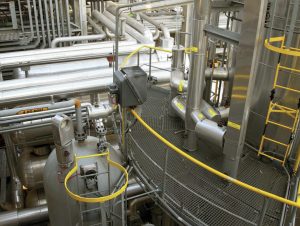
Waste to methanol plant development
Maire Group subsidiary MET Development, together with Eni and utility company Iren Ambiente, have started the permitting process for a renewable methanol and hydrogen plant at Eni’s refinery in Sannazzaro de’ Burgondi near Pavia. The plant will be developed using NextChem’s NX Circular™ technology, which allows the plant to convert waste by generating syngas, which is subsequently used to produce high quality sustainable fuels and chemicals. Once completed, the plant will be able to convert approximately 200,000 t/a of non-recyclable waste supplied by Iren’s waste management unit Iren Ambiente into synthesis gas. This will in turn be converted to produce up to 110,000 t/a of renewable methanol, as a potential fuel for decarbonisation of the maritime sector. It will also produce up to 1,500 t/a of hydrogen, which could be used in refinery processes, reducing CO2 emissions compared to fossil-generated hydrogen, or, alternatively, for sustainable mobility in road and rail transport. The plant will also recover 33,000 t/a of inert granulate, which can be used for the cement industry. The plant will use infrastructure and services already available at the refinery to optimise costs.




